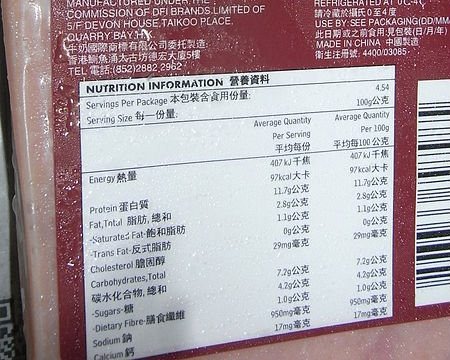Calorie Labels May Not Be Accurate, Science Says
Those of us who dutifully read the calorie labels on every food item we buy may be getting fooled, as recent studies indicate that the calorie counts on labels might be inaccurate.
According to Live Science, the current system for counting calories in food dates back more than 100 years and doesn't account for the way processing food affects the number of calories that make it into the body. Some scientists are even calling for an overhaul to the calorie counting system so people will get a more accurate picture of the calories they get from the food they eat.
The amount of pounding, mashing, and slicing that goes into the preparation of food affects the number of calories that a person will get from eating it. There are also bacteria that live in people's digestive systems that steal some of the calories for themselves.
A study last year showed that while almonds had traditionally been credited with about 170 calories per serving, a person who eats them only gets about 130 calories. The difference turned out to be due to the fact that the body doesn't get all the fat out of the nuts; some of it passes right through.
High fiber foods are more difficult to digest, which means the body gets fewer calories from them. Processing food makes it simpler to digest, so there are generally more calories obtained from a processed food than from the unprocessed version. For example, a mashed potato might give 300 calories, but eating an unprocessed potato of the same size will give only about 200 calories, according to Rachel Carmody, a postdoctoral fellow at Harvard University's FAS Center for Systems Biology.
Some researchers say that while the calorie estimates on labels are inaccurate, the numbers are close enough that the differences wouldn't make a huge difference to consumers. And since the calorie estimates are usually higher than what the body would be getting, inaccurate labels wouldn't hurt anyone's weight-loss efforts.
But others say that as long as we're putting calorie counts on labels, they should probably be accurate. "By getting a better understating of the effective calories in food, we'll get a better sense of human energy requirement," Carmody said. "We can start to think of simple ways to improve [the system] that will be better for the average consumer."
